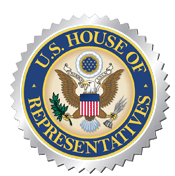Via Email
Speaker of the House
U.S. House of Representatives
Washington, D.C. 20515
Since you have taken office as Speaker of the House, a number of initiatives have led to great progress in increasing the transparency of our legislative process by posting video from committee hearings for download on the Internet:
- The Office of the Speaker has been instrumental in working with the Chief Administrative Officer and the Committee on House Administration to substantially accelerate plans to wire all hearing rooms.
- C-SPAN has agreed to a greatly liberalized copyright policy for all committee hearings and other government proceedings, both archival and their current coverage. This has made available a 20-year archive of proceedings of the Congress for use by anybody on the Internet.
- Four committees, in cooperation with our nonprofit research group, have posted demonstrations of high-resolution video available for direct download on the Internet in locations such as the nonprofit Internet Archive, as well as other sources such as YouTube. Documentation on this effort may be found in our Report to the Congress.
Current Situation
While a series of changes are in process that will result, over the next 3 appropriations cycles, in greatly enhanced access by the public, there is a short-term transparency gap. In particular, the House Recording Studio, which maintains the official video archive of the House, makes video from hearings available only if two conditions are met:
- A fee of $60/hour must be paid. Since hearings are almost always more than one hour, it is not unusual to pay $200 or more for a hearing. My nonprofit group has to date spent $1,470 to put a handful of hearings from a few committees on-line.
- The approval of the Chairman of the Committee must be granted.
I realize that the Office of the Speaker does not set the rates for recording, but I must say that $60/hour is an incredibly high rate.
The Executive Branch
Our nonprofit corporation, Public.Resource.Org, has spent considerable time demonstrating the feasibility of more on-line video not only to your staff and the U.S. House of Representatives, but also to a large number of executive branch agencies.
If you go to our home page, you will see that a large number of executive branch agencies have been quite cooperative. For example, with the blessing of the Department of Homeland Security, we have posted 32 important videos for firefighter training. The National Institutes of Health have contributed dozens of videos, as have the Departments of Labor and Agriculture, and the General Services Administration.
Recently, we have reached an agreement with the National Technical Information Service for a joint venture I am calling Fedflix. Under this agreement, NTIS will send us 20 videos every month. We will make copies of those videos and upload them to a variety of outlets for use by the public at no charge, and will then send the videos back along with a digitized copy.
While NTIS would like to have all videos available for free today, that is of course not practical as an immediate goal. As with the House, it will take time to digitize their holdings. But, while they strive to achieve that goal in the future, the Fedflix program provides an important safety outlet, giving the public access to public domain information today at little cost to the government.
A Call to the Congress to Join Fedflix
I ask you today if the U.S. House of Representatives would join in this program. Specifically, I would ask your assistance in reaching an agreement with the House Recording Studio to send us a set number of discs each month. We would make copies of those discs and return them immediately to the House Recording Studio, who would then ship us another batch. We would be happy to pay shipping in both directions so there are no financial costs to the U.S. House.
In the future, we all share the goal that every public proceeding be truly public, and in this day and age that means broadcast quality video from the public event being available for use without restriction on the Internet. Your efforts to mobilize the House of Representatives have been instrumental in moving us closer towards that goal.
The Fedflix program I propose to you today would be a short-term safety valve, making hearings from 2005 to the present more widely available. I have spoken to several committees that participated in the high-resolution demonstration this summer, and I believe these committees would all be happy to participate in such a program to make their hearings more widely available to the public.

